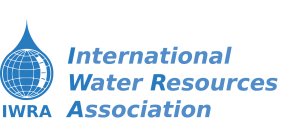Members
TOYOKO AND HIROSHI HORI EDUCATION FUND
The Toyoko and Hiroshi Hori Education Fund provides support for IWRA memberships for promising scholars from developing economies, especially those designated by the OECD as least developed.
Hori Fund Grants for Scholars from Low-Income Countries
Criteria for awardees are that they
(a) have a clear financial need;
(b) are from OECD Least Developed Countries or regions;
(c) are from countries or regions that are significantly underrepresented in IWRA membership; and
(d) demonstrate a potential to serve IWRA, in particular to increase membership and activities in their country or region.
Grants for memberships, including subscriptions to Water International, are for one year, renewable up to a maximum of three years.
Mr. Hani Al-Koli from the Sana’a Water and Sanitation Local Corporation (Republic of Yemen) have been accepted by the Hori Fund Task Force and was awarded in 2015.
Mr. Taha Al-Washali from the National Water Supply and Sanitation Authority (Republic of Yemen) have been accepted by the Hori Fund Task Force and was awarded in 2015.
Miss Samah Mahmood Abdo Saif from the Ministry of Water and Environment (Republic of Yemen) have been accepted by the Hori Fund Task Force and was awarded in 2015.
Dr. Khalid Qahman (Palestine) have been accepted by the Hori Fund Task Force and was awarded in 2014.
During the last 20 years Dr. Qahman built up a broad professional experience as infrastructure planner, project manager and senior advisor in water resources and civil/ environmental management projects. As team leader, Dr. Qahman worked on numerous engineering, water resources management and environmental related assignments. Dr. Qahman also works as an Assistant Professor in Water and Environment (part-time) at Alquds University, Al Azhar University, and Gaza Islamic University (master programs), and is a senior consultant at Engineering & Management consulting centres. He carried out several studies and researches in the field of Water and Environment. He holds a Bachelor of Science Degree in Civil Engineering from Birzeit University, Palestine, a Masters Degree in Hydrological Engineering from the IHE-Delft University, the Netherlands and a Ph.D. degree in Civil Engineering from Mohamadia School of engineers (EMI)- Mohammad V University, Rabat–Morocco.
Mr. Abdulkadir Mohamed Tahlil (Somalia) have been accepted by the Hori Fund Task Force and was awarded in 2014.
Dr. Hans Charles Komakech (Tanzania) have been accepted by the Hori Fund Task Force and was awarded in 2014.
Mr. Leo Mwebembezi (Uganda) have been accepted by the Hori Fund Task Force and was awarded in 2014.
He is a Ugandan water resources manager and hydrologist professional with 16 years of experience in water resources management. He holds an MBA, MSC in Environment Management, postgraduate diplomas in Integrated Water Resources Management and Project Planning and Management, and a Bachelor of Science (with honours) from Makerere University Kampala. He has also undertaken a number of short courses in Hydrological Analysis and Forecasting, Flood Modelling and Sediment Transport Modelling and Analysis. His areas of focus include water resources assessment for water related projects including hydropower, water supply, irrigation and planning, hydrological analysis and modelling, flood modelling and analysis, sediment load and sediment yield determination, rainfall-runoff modelling, flow duration curve analysis and environmental flow analysis. He has authored and co-authored several papers in refereed scientific journals. He works with the Ministry of Water and Environment in Uganda.
Dr. Stephen Odhiambo Otieno have been accepted by the Hori Fund Task Force and was awarded in 2013.
The first 2013 application has been accepted by the Hori Fund Task Force and was awarded to Mr Majid Labbaf Khaneiki.
Majid Labbaf Khaneiki was born in 1976 in northeast of Iran. He graduated from Mashhad Azad University in the field of agricultural engineering. From 1998 to 2005, he has worked as a researcher respectively for the Amirkabir Research Institute and the Iranian Academic Center for Education, Culture & Research (ACECR). From 2005 on, he has been working as Senior Expert for the International Center on Qanats and Historic Hydraulic Structures (ICQHS), which is a UNESCO Category II Centre based in Iran. He has authored and co-authored the books Veins of Desert, Qanat in its Cradle, Water Division Systems in Iran, Water and Irrigation Techniques in Ancient Iran, Qanats of Taft, Qanat of Gonabad as a Myth and Qanats of Bam from Technical and Engineering Point of View. His articles have appeared in Geographical Researches Journal, Mashhad University Journal, etc.
Current members of the IWRA are invited and encouraged to recommend candidates, using the form available here. Inquiries should be directed to IWRA Executive Office: office@iwra.org.

ADDRESS
Stafford Rosenbaum LLP
222 West Washington Avenue, Suite 900
Madison, Wisconsin 53701-1784
United States of America
IWRA Executive Office
22, rue de Madrid 75008
Paris, France
Phone: +33-6-44-20-57-53
Email: office@iwra.org
Editorial: editor@iwra.org
